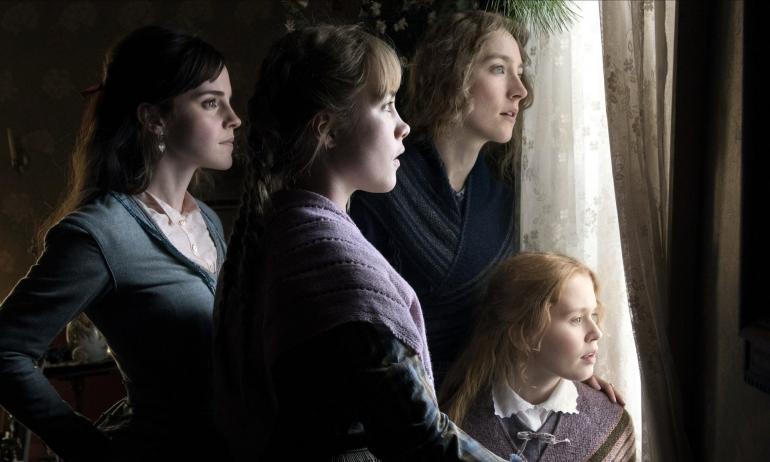
Greta Gerwig embarked upon her remake of Little Women with fanatical attention to detail. She took the cast on tours of Louisa May Alcott’s home in Concord, Massachusetts, and wangled the budget to shoot the film nearby. She gave her actors extracurricular reading to get into character. She even had Alcott’s and her own birth charts compared (Gerwig is probably the only director who could say something so wafty and not make me pull a muscle rolling my eyes).
Clearly, she had also anticipated the resistance that her Little Women would engender: a film about women’s domestic lives remade at a time when it seems as if the greatest accolade available to female directors and actors is helming a superhero movie and proving they can play with the boys. It’s there in the first scene of her reordered adaptation: the adult Jo March (Saoirse Ronan, now 25, in what may prove to be her last great girlhood role) stands off against a publisher who scoffs at her “moral” stories and rewrites one to enhance its commercial viability.
But Gerwig has a more interesting antagonist in her sights than masculine disapproval: namely, the lifelong tension between youthful idealism and adulthood’s inevitable compromises; how loneliness and the need to survive can create a constant hum of betrayal in the background of one’s life. Gerwig and her cast essay the March sisters’ childhood in such ruddy physicality that the forced poise and distance of adulthood comes as its own bereavement: how Timothée Chalamet’s impish Laurie sneakily sniffs Jo’s hair as they watch Meg through the curtains at the debutante ball; their pimpled skin (also a fixture of Gerwig’s directorial debut, Lady Bird); plaid puddles of girls shrieking with laughter on the floor; Jo’s inky fingers.
Saoirse Ronan and Timothée Chalamet in Greta Gerwig’s Little Women.
Gerwig’s decision to splice two timelines doesn’t just bring exhilaration to a narrative that everyone down to Friends’ Joey Tribbiani knows, but affirms what is at stake for each character in maturity, especially in the tightly interwoven scenes of Beth fighting illness as a girl and later a young woman. At first, the young Jo awakes from her lapsed bedside watch to empty sheets, and sprints downstairs to find a wan, smiling Beth at the breakfast table. Years later, the grownup Jo goes down and finds Marmee alone. It’s a gut-punch familiar to anyone who has nursed a dying relative at home and then returned to their empty room; and an instant dissolution of childhood naivety.
In her biggest change to Alcott’s narrative, Gerwig reconciles the unease between Jo’s teenage passions and grownup reality by having her refuse to marry Professor Bhaer or to wed the heroine in the story she sells: she has said she wanted viewers to feel the same thrill over “girl gets book” as they usually would when “girl gets boy”. Her decision has been praised for recognising Alcott’s feminist intentions and for validating a woman’s mind over her romantic potential; it’s also been criticised for perpetuating lean-in feminism and, in its own way, devaluing the original text.
There’s truth to both arguments. But then, many of this year’s best picture nominees want to have it both ways: Jojo Rabbit teeters on a knife edge between cutesiness and confrontation. Joker counterbalances its inflammatory right-wing ethos with laboured mourning for the welfare state. The existence and success of Once Upon a Time in Hollywood undermines Tarantino’s begrudging lament for a macho culture that supposedly could never exist today. Marriage Story’s Charlie Barber is a MacArthur fellowship-certified genius and controlling director who we’re expected to believe is flummoxed by his cruel wife’s unsparing attitude to divorce. If Gerwig has overcorrected, it’s only because she honoured Alcott over her text, a noble impulse that embodies Little Women’s spirited and ongoing battle between the head and the heart.



